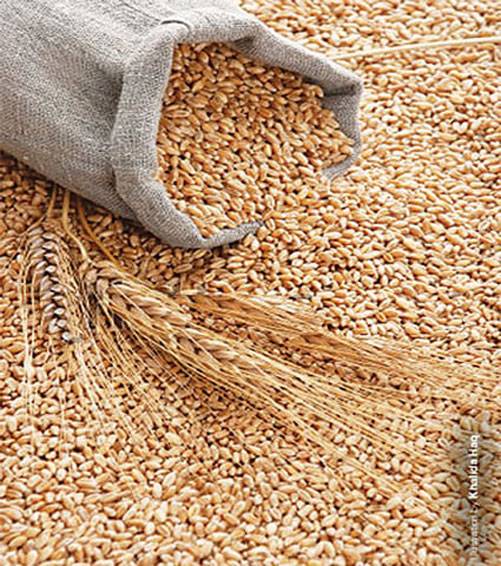ISLAMABAD - The federal government authorities have expressed apprehension that country might once again face wheat shortage in next season as it had happened in last year.
The National Assembly’s Standing Committee on Commerce and Textile, which met under the chair of Naveed Qamar, has discussed the import of wheat. Chairman Trade Corporation of Pakistan (TCP) informed the committee that Ministry of National Food Security & Research (MNFSR) has already warned of wheat shortage in the country in next season. He said that TCP is importing wheat to bridge the gap in local market.
Chairman of the Committee has expressed concerns over the shortage of wheat in the country. He said that there is always an interest of some people in importing commodities from other countries. He asked whether the government would continue to import wheat. The government should give incentives to the farmers of the country to increase the wheat production in order to bridge its shortfall. He blamed the government’s policies for wheat shortage.
He expressed his concerns that due to this permanent cycle of wheat import, the government is providing incentives to foreign farmers instead of our own growers, and this situation is against whole agriculture sector and the economy of Pakistan. The Committee invited the Secretary, Ministry of National Food Security and Research for a briefing on wheat, in the next meeting.
The Chairman TCP briefed the Standing Committee on Commerce that as per given target by the government, the TCP has imported 2.16 million MT wheat through international tendering and PASCO. 30 bulk vessels of TCP arrived from October 2020 to March 2021. Tenders for Additional 300,000MT are being floated by TCP.
The Committee also discussed the issues relating to import of cotton. The Ministry of Commerce informed the Committee that due to less cotton production, domestic production of cotton yarns has remained low, which resulted yarn shortage and subsequently high yarn prices. Value-added sector is not able to cover yarn to materialize export orders.
The Standing Committee observed a continuous decline of cotton production since FY 2015-16. The Committee constituted a Sub- Committee on the matter. The Sub-Committee will present its report in 30 days.
The meeting was attended by Ali Khan Jadoon MNA, Khurram Shehzad MNA, Mian Muhammad Shafiq MNA, Wajiha Akram MNA, Sajida Begum MNA, Usman Ibrahim MNA, Rana Iradat Sharif Khan MNA, Rasheed Ahmed Khan MNA, Tahira Aurangzeb MNA, and Shaza Fatima Khawaja MNA.






